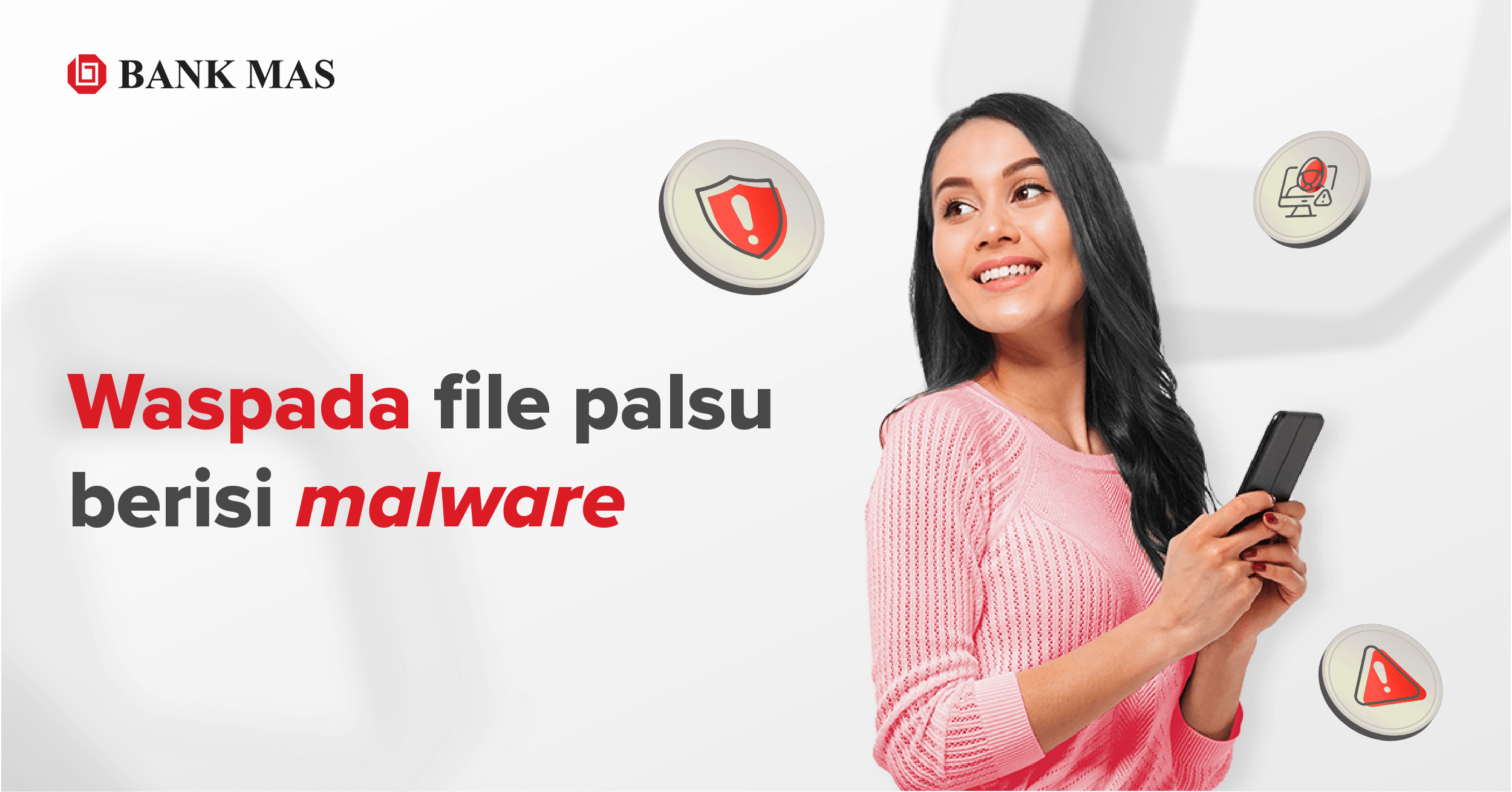Technological developments have been widely used in various fields, including banking. Now you can make transactions anytime and anywhere using the internet and mobile banking.
However, the rapid development of this technology is also used by irresponsible parties for online crime modes to target personal data to cause financial losses for victims.
One of the modes used is to send messages containing malware files (malicious software), namely software used to steal data or damage computer systems. In practice, malware does not only attack computers or laptops, but all devices, including cellphones, are targets of malware attacks.
Messages containing malware files are very diverse, from invitation mode and job applications to voice notes, with one goal, namely, to make the target who gets the message click and download the malware file. Here are some fraudulent modes of fake files containing malware:
- Fake document files. Original document files usually display files with the characteristics of the application's brand logo. For example, an original pdf file will display a white pdf file with red letters and shows the number of pages. On the other hand, fake pdf files do not show page count details and previews of file contents.

- Some time ago, online fraud was rife using apk files sent in messages to trick victims. Apk files that are often sent can be in the form of wedding/seminar invitations, photos of receipts/packages from expeditions, police ticketing letters, tax summonses, fake transfer proofs, free BI-Fast lists, and fake invoices.

Meanwhile, official applications are usually only available on official application platforms, namely the Google Play Store for Android or the App Store for IOS.
Apart from using the fake document and apk file mode above, you must also be aware of several other modes from unknown numbers. For example, sending fake word files or voice notes that can harm personal data on your device.
How to Avoid Malware Files
Here are some ways to avoid fake files containing malware that you can do:
-
Update phone system
Nowadays, most mobiles have got automatic system updates. However, you still need to make sure whether your cellphone has gotten the automatic update. Basically, updating your phone doesn't only make sure to have the latest features of the operating system you're using but also to get important security system updates that keep your phone safe.
-
Don't just click on a link or download a file sent via message
You may often get text messages containing links or files via SMS or the WhatsApp application. Before you click on the link or download the file, it's a good idea to first check the number that sent the link or file whether it's a number you recognize or not.
If the message comes from a number you don't recognize, it's better not to click on the link or download the file. Apart from that, you can also check the characteristics of fake files based on the previous explanation, so you don't download the files sent from the origin.
-
Install antivirus
To avoid malware file attacks, you can also install an antivirus on your device, which will alert you if there are malicious applications or phishing links that aim to steal your personal data.
-
Only install apps from official sources
If you get a message containing an apk file asking you to download and install it, it's better to ignore it. The file could harm your cellphone. Make sure you only install on official app stores like the Play Store for Android and the App Store for IOS.
-
Activate the MAS Mobile notification feature on your cellphone
Activating the MAS Mobile notification feature on your cellphone can help you check transaction activity that occurs. If suddenly there are suspicious transactions, it can indicate that your device or cellphone has been hacked and used for transactions without you knowing it.
If a suspicious transaction is found, you can contact the Bank MAS call center number at 1500011 or via email at care@bankmas.co.id
Sources:
